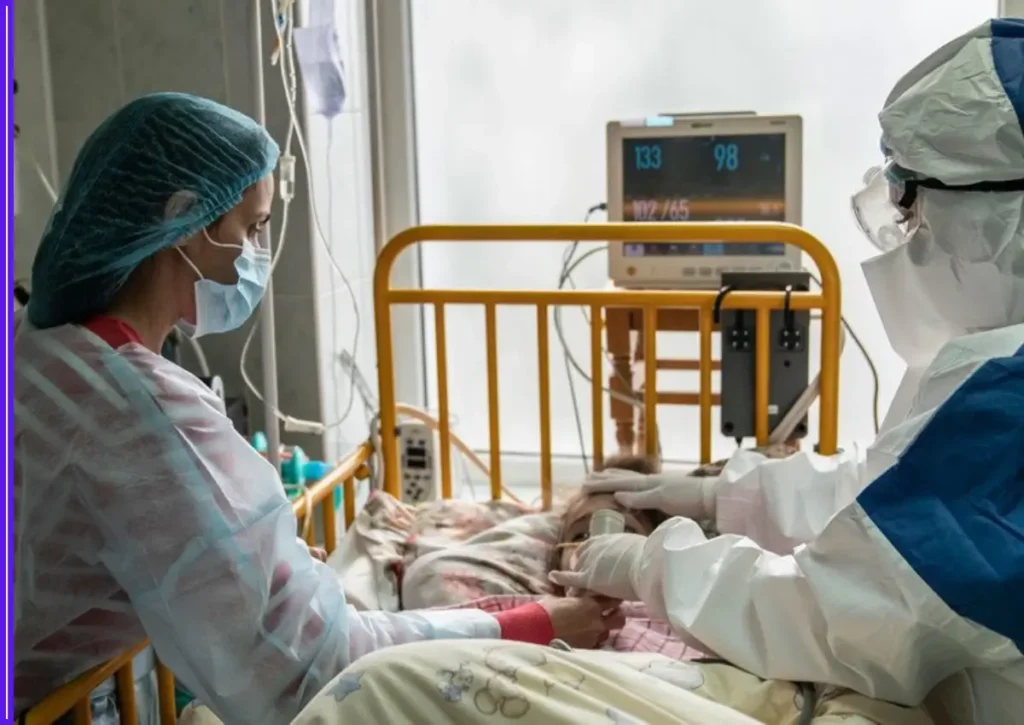Medical professionals across India and around the world are reporting a steady increase in cases of Long COVID, a post-infection condition marked by a range of lingering health issues that persist weeks or even months after recovery from COVID-19.

Also known as Post-COVID Condition, Long COVID can affect anyone who has had the virus—regardless of the severity of their initial illness. Doctors say even those who experienced mild or asymptomatic COVID-19 have reported extended health complications that interfere with daily life and work.
According to recent data compiled by India’s Ministry of Health and Family Welfare, as well as global health agencies like the World Health Organization (WHO), the most commonly reported symptoms of Long COVID include:
- Persistent fatigue
- Difficulty concentrating or “brain fog”
- Shortness of breath
- Muscle aches or joint pain
- Sleep disturbances
- Anxiety or depression
- Palpitations or chest discomfort
- Loss of taste or smell that lingers
- Digestive issues
- Memory loss or confusion
Dr. Rakesh Nayar, a pulmonologist at AIIMS Delhi, noted that patients continue to come in with unexplained symptoms even months after testing negative. “We’re seeing people, especially in the 25 to 50 age group, who can’t return to full-time work because of overwhelming tiredness, mental fog, or difficulty breathing,” he said.
The Ministry has urged state health departments to set up dedicated Long COVID clinics in major government hospitals to handle growing outpatient traffic. Many doctors are also calling for insurance companies to cover treatment for post-COVID syndromes, which remain a grey area under many health policies.
Recent studies estimate that between 10 to 30 percent of COVID-19 patients may experience some form of Long COVID. Researchers believe the condition could be linked to immune system overactivity, residual inflammation, or organ damage caused during the acute phase of the infection.
Dr. Leena Patel, an internal medicine specialist in Mumbai, emphasized that Long COVID is not a psychological issue. “These are real, physical symptoms that affect energy levels, memory, and breathing capacity. It is frustrating for patients because standard tests often show normal results, yet they are clearly unwell,” she said.
Long COVID has also impacted children and adolescents, though less frequently. Pediatricians have reported cases of prolonged headaches, irritability, and fatigue in children who had seemingly mild infections.
In India, Long COVID is now being tracked under the national post-COVID surveillance program. Hospitals in cities such as Delhi, Bengaluru, Pune, and Chennai have seen a rise in outpatient visits from recovered COVID-19 patients seeking help for persistent issues.
Health experts have recommended a multidisciplinary approach involving physicians, pulmonologists, neurologists, psychologists, and rehabilitation therapists. Breathing exercises, graded physical activity, and mental health support are among the treatments being used.
International health bodies, including the WHO and CDC, have defined Long COVID as a condition in which symptoms persist beyond 12 weeks after the initial infection and cannot be explained by an alternative diagnosis.
While there is no standard test to confirm Long COVID, doctors diagnose it based on patient history and by ruling out other possible conditions. In India, public health officials continue to urge COVID-19 survivors to monitor their health even after full recovery.
Patients experiencing Long COVID symptoms are advised not to ignore or self-medicate. “If you’re still feeling unwell after several weeks, go back to your doctor. Early intervention helps prevent complications,” said Dr. Nayar.
With the long-term impacts of COVID-19 still under study, doctors are calling for increased awareness and support systems for patients affected by this slow-recovering condition.









